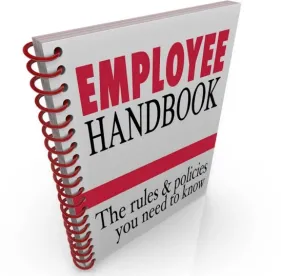Although Georgia’s Restrictive Covenants Act has been on the books since the spring of 2011, no judge has decided the exact scope of Georgia courts’ blue-penciling abilities – until now. In a case of first impression, Judge Thrash of the United States District Court for the Northern District of Georgia, in LifeBrite Laboratories, LLC v. Nina H. Cooksey, 1:15-cv-04309 (N.D. Ga. Dec. 9, 2016), held that the term “modify” in Georgia’s Restrictive Covenants Act limits blue-penciling to striking unreasonable restrictions and to narrowing overbroad, existing terms. Judge Thrash did not adopt an expansive reading of the term “modify” that could allow a court to supply entirely new terms to render a non-competition covenant enforceable.
In this case, LifeBrite Laboratories hired Nina Cooksey as a business consultant tasked with selling LifeBrite’s toxicology tests to various medical practices and physicians. The parties entered into an employment agreement containing a non-competition covenant. The provision prohibited Ms. Cooksey from working for any potentially-competitive laboratory testing facility during her employment with LifeBrite and for one year thereafter. The restrictive covenant did not include any geographic restrictions. After a short period of employment with LifeBrite, Ms. Cooksey sought other employment and accepted an offer from another lab testing facility. LifeBrite sued Ms. Cooksey for breach of the non-competition covenant. In response, Ms. Cooksey sought a declaratory judgment that the non-compete was unenforceable without a geographic limitation.
Under Georgia law, a non-competition covenant will generally be enforceable if it is “reasonable in time, geographic area, and scope of prohibited activities.” O.C.G.A. § 13-8-53(a). Judge Thrash noted that the lack of any geographic limitation rendered the parties’ non-competition covenant unenforceable. Prior to the passage of Georgia’s Restrictive Covenants Act, Judge Thrash’s analysis would end there. However, that Act permits courts to “modify a covenant that is otherwise void and unenforceable so long as the modification does not render the covenant more restrictive with regard to the employee than as originally drafted by the parties.” O.C.G.A. § 13-8-53(d). Judge Thrash stated that the “question in this case is whether ‘modify’ means that courts may only excise offending language, or whether courts are empowered to actually reform and rewrite a contract.” LifeBrite, 1:15-cv-04309, at 16. Judge Thrash considered the latter to be an issue of first impression in Georgia.
Judge Thrash relied on Georgia common law to reject a broad interpretation of the term “modify.” He noted that, prior to 2011, Georgia courts strictly reviewed non-competition covenants in the employment context and struck covenants in their entirety if any portion was unenforceable. In the sale-of-business context, however, Georgia courts did permit the excision of unenforceable language and the narrowing of unreasonable geographic areas when reviewing non-compete covenants. See Hamrick v. Kelley, 260 Ga. 307 (1990). Judge Thrash determined that nothing in Georgia’s Restrictive Covenants Act indicated a “change [in] Georgia’s common law approach to blue-penciling other than to allow it in more circumstances.” LifeBrite, 1:15-cv-04309, at 20. In the end, Judge Thrash held that the term “modify” should be limited to striking any unreasonable restrictions and narrowing the existing, overbroad terms.
The LifeBrite case is a case of first impression and a decision by a well-respected United States District Court judge. Though it was not an interpretation of Georgia common law by a Georgia state court, this decision is still likely a harbinger of future cases. The takeaway is that Georgia courts are likely still reluctant to rewrite or reform unenforceable non-competition covenants by supplying new terms. But Georgia courts may now feel more comfortable narrowing existing terms to make restrictions more reasonable and thus enforceable, and refusing to add missing terms.




 />i
/>i
